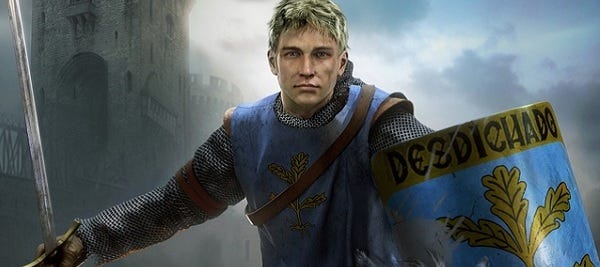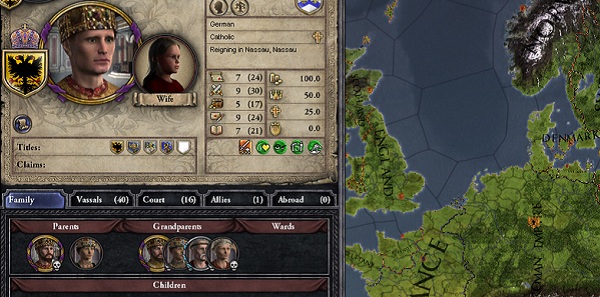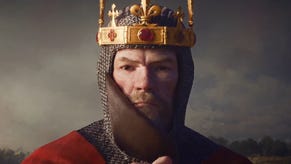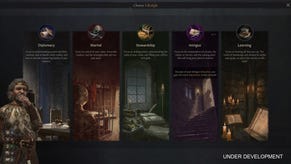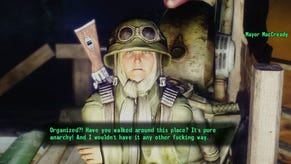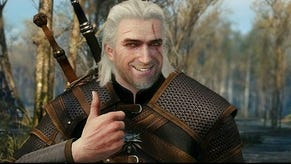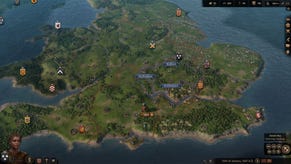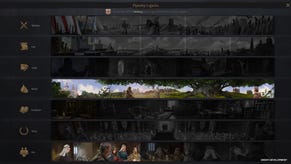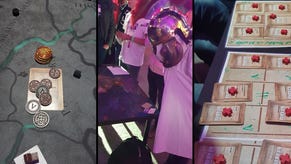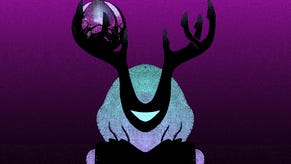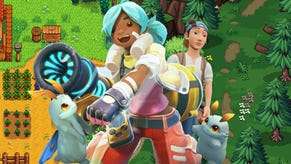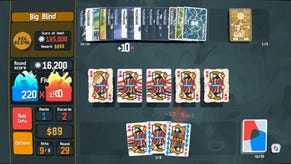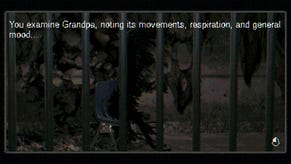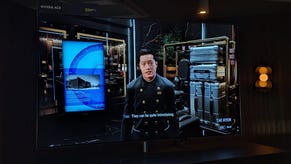Regal Counsel: Crusader Kings II Interview
No cabbages, just kings
Having fathered both bastards and imperial legacies, Adam still refuses to release his grip on Crusader Kings II. To learn more about his latest love, he communed with project lead Henrik Fåhraeus and asked about future plans, the difficulty of incorporating RPG elements into an epic historical strategy game and the features that didn't make the cut. Upon learning that one of those features was 'relics and other loot', Adam sheds a solitary tear for what might have been, and then goes on to learn that the shape of a beard is not genetically inherited, causing him to reconsider the sorry state of his own chin furniture.
RPS: The original Crusader Kings was an unexpected delight and one that I never fully expected a sequel to. What was the background to the first game and what led to development of a sequel?
Fåhraeus: Our ambition has always been to cover all eras of recorded history with our grand strategy games. Pushing the timeline back into the Middle Ages from Europa Universalis was a natural step, just like we did in the other direction with Victoria and Hearts of Iron. Besides, at the time we all (Johan Andersson, Joakim Bergqwist and I) wanted to try our hands at a more character driven RPG-like game, and the feudal era is perfect for that.
Doing a sequel was almost inevitable after we developed the Clausewitz engine, especially since the first game had so much unrealized potential.
RPS: Archaeologist/historian Ian Morris argues that history is driven by "maps and chaps". Most grand strategy games are more about maps than chaps. Crusader Kings II is different - what challenges does the focus on individuals bring from a development perspective?
Fåhraeus: Injecting RPG elements into strategy games is risky, as proven by other developers (no names). You have to be careful not to compromise the epic scale and/or the satisfaction of territorial expansion. Crusader Kings II should feel familiar to Europa Unversalis players, yet provide a deeper immersion into the lives and fates of your ruler and dynasty. It's a tricky balance - at one point we went a little overboard with events, which slowed down the flow of the game too much with the minutiae of feudal life.
RPS: I've described the game as an 'alternate history simulator'. How much do you see the appeal of the game in terms of the historical narratives it creates?
Fåhraeus: I think that's really at the heart of all our games - take a historical starting point and see where you can go from there. Of course, unlike games like Victoria or Europa Universalis, in Crusader Kings II the player is less of a "guiding spirit of the nation" and more of an actual feudal era despot. The historical narrative is more about your dynasty than your actual country or state.
RPS: Was the decision not to allow control of Pagan and Muslim factions driven by a reluctance to impose the Christian dynastic model on those families?
Fåhraeus: In part yes, although the Muslim Iqta system could probably be shoehorned into the rough model of feudalism. There was a clear trend towards hereditary land holdings in the Muslim world too. It's perhaps not so much about the dynastic model as such, but more an issue of adapting graphics and text to provide the right kind of immersion.
Of course, we also think playing a Muslim or Pagan deserves some unique new gameplay mechanics, such as polygamy. Most importantly though, it was never part of our ambition - we just wanted to do everything the original CK did, only better.
RPS: Is there any intention to provide a full treatment of those factions through DLC?
Fåhraeus: Yes. (smiles)
RPS: I spent weeks listening to Andreas Waldetoft's music, because the game was always on in the background while I was working at my computer. It's easy to think of the game has numbers, a map and some menus, but how important is the aesthetic, including the music and the map design?
Fåhraeus: Even I was surprised by how much the pretty new map helps with the immersion (the huge map upgrade was not originally planned.) As for the music, Waldetoft's work has always been excellent. Obviously, it is preferable to have pretty graphics and grade A music and sound effects. You can make do without them if it's your first game and you are a small developer - as proven by games like Dwarf Fortress (which I love) - but if you want to reach broader markets, you really do need these kinds of resources.
RPS: The game deals with sensitive issues, from the crusades themselves to religion, sexuality and infanticide. Would you agree that it's a much more mature and adult game than a shooter with lots of exploding people and an '18' certificate?
Fåhraeus: It is more mature in the sense that it is more cerebral and requires a whole other degree of planning and patience. However, what is seen as taboo or risque varies from culture to culture. Here in Sweden, for example, graphic violence is considered a lot more disturbing than nudity or a sexual narrative (though younger people are probably more desensitized to both.)
RPS: Have you seen anything particularly interesting or impressive from the modding community yet?
Fåhraeus: I am very interested in the Game of Thrones mod, though unfortunately I have not had time to check in on it lately.
RPS: I'm fascinated by the artificial intelligence in the game, and suspect it's far cleverer than I am. Am I the only person who would like a 'spectator mode', where I don't assign human control to any dynasty and just get to watch, with full access to every detail?
Fåhraeus: You can actually do that. Start a game and type 'observe' in the console. You can also disable the fog of war with 'fow'.
RPS: (recovering from having mind blown) I remember downloading a tool that let me take a Crusader Kings save game into Europa Universalis, then to transfer that to Victoria and on into Hearts of Iron. It's a totally mad and all-consuming idea but, again, it appeals to my love of alternate history. Do you ever consider complete compatibility across all the titles, or would it be too difficult to transfer data across successfully?
Fåhraeus: I am not optimistic about transferring save games from one game to another. After all, most players never even finish their grand campaigns. There are so many technical problems, and in most cases you would already have achieved world conquest or something similar in the previous game.
Instead, I would love to make one huge game covering all of recorded history, with new periods provided as expansion packs. You would have the rules and gameplay change dynamically as technology and politics evolved. It's just a pipe dream, but... it's beautiful.
RPS: How deep does genetic inheritance run? I'm primarily interested in how it affects facial hair. "The beards of the fathers" and all that.
Fåhraeus: Hair color and facial features are hereditary, but haircut and beard shape are not; they are more like clothes.
RPS: I found an interview in which you listed some of your favourite computer games: Lords of Midnight, Warlords, Civilization, Ultima VII: The Black Gate, Master of Magic, UFO: Enemy Unknown and Mass Effect. My question is this - why did you steal my list of favourite games and then add Mass Effect on the end?
Fåhraeus: Haha, well, some people grow into more complex and mature games with age, but I guess I'm past all that and starting to regress into childhood again. Seriously though, I think Bioware achieved something special with the immersive story and universe they built for Mass Effect. It's just a shame it's so linear and action heavy; the sequels even more so. I had hoped they would take it in the opposite direction, towards a game like Star Control II, with meaningful planetary exploration, ship combat and upgrades, etc.
RPS: You must be pleased with the critical response but is there anything that you'd like to expand on or elements that didn't make it into the game?
Fåhraeus: We have so many ideas kicking around I could probably spend the next five years improving on Crusader Kings II. Fortunately, a lot of them are likely to appear in patches and DLC down the line. I would love an annual chronicle, relics and other loot, more (but rare) narrative events, tribute, clans and tribes, and a more developed plot system, just to name a few off the top of my head.
RPS: Thanks for your time.
